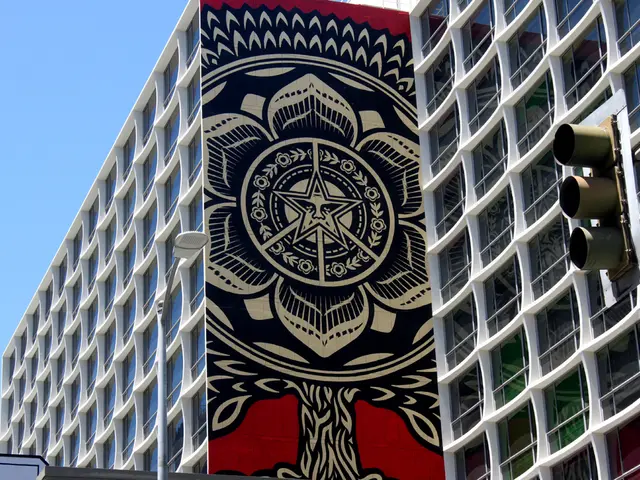Law enforcers under scrutiny for concealing key proof in Samourai Wallet matter
Unveiled: The Saga of Samourai Wallet's Unjust Prosecution
In a shocking revelation, the cat's out of the bag on the Samourai Wallet case. On May 5, 2025, Samourai Wallet's lawyers released a letter to the Manhattan federal court, exposing a year-long cover-up by the DOJ. The letter states that DOJ officials were informed by FinCEN senior officials in 2023 that, under FinCEN guidance, crypto mixer Samourai Wallet app doesn't fall under the "Money Service Business" definition. Yet, prosecutors charged Samourai Wallet co-founders Keonne Rodriguez and William Lonnergan Hill for operating a money-transmitting service without a license from FinCEN.
Exploring the Underbelly of Samourai Wallet Case
The letter reveals that the DOJ was aware of Samourai Wallet's non-qualification as a money transmitter, yet pressed on with the prosecution. The truth surfaced only after a specific request on Apr. 1, 2025. The DOJ's withheld evidence has raised ethical concerns, as it has been advised not to prosecute the co-founders of Samourai Wallet.
In a memorandum called "Ending Regulation by Prosecution," introduced on Apr. 7, Deputy Attorney General Todd Blanche pinpointed the DOJ's policy to no longer prosecute mixing services for acting without a FinCEN license. Withholding this critical information for nearly a year represents a violation of Justice Department procedures.
However, the case is still open, awaiting the prosecutors' response to the letter.
Samourai Wallet: Beyond the Money Transmitter Debate
Samourai was a non-custodial, open-source platform, which meant it didn't touch users' money. It merely provided a tool to obscure transaction data. The mixer platform's staff didn't benefit from the Samourai Wallet operation. The controversy stems from the FinCEN guidance focusing on custody as a crucial factor determining whether a platform is an MSB or not. Consequently, Samourai Wallet, being a platform without custody of users' crypto, doesn't act as an MSB.
The Origin Story
Samourai Wallet is a cryptocurrency mixer app designed to obfuscate transaction data, allowing for private transactions. Rodriguez and Hill were charged as operators of an unlicensed money-transmitting business in April 2024, with a $2 billion volume in transactions and allegations of laundering $100 million in illicit proceeds.
A Broader Perspective
The Samourai Wallet case is reflective of a broader issue during the Biden term—the stealth crackdown on cryptocurrency. This period is marked by the controversial policy known as Operation Choke Point 2.0, or the debanking of the crypto business. U.S. officials recommended that banks stop providing services to crypto clients without explaining the reasons. Some key figures, like Sen. Cynthia Lummis and Coinbase CTO Paul Grewal, oppose OCP 2.0.
With the pro-crypto and privacy-friendly direction of the Trump Administration 2.0, there is hope that the case will turn in favor of Samourai Wallet's founders, while those responsible for suppressing and debanking crypto businesses will face accountability.
Sen. Lummis Warns FDIC Staff Against Destroying OCP 2.0 Docs
The legal dispute between Samourai Wallet and the DOJ features a complex interlacing of crypto regulations, privacy concerns, and the evolving market. It is atestament to the challenges faced by companies operating in the rapidly growing and evolving cryptocurrency space.
- The revelation about the Samourai Wallet case has echoed across the crypto industry, causing a stir among crypto enthusiasts and general news outlets.
- Despite the recent disclosure, the legal battle between Samourai Wallet and the DOJ continues, with the co-founders still facing charges related to theoperation of the XRP and crypto mixing service.
- As the story unfolds, concerns about licensing and policy & legislation within the banking-and-insurance and finance sectors have been raised, with an emphasis on understanding the nuances of the Cryptocurrency and Defi space.
- An interesting twist came when Sen. Cynthia Lummis, a prominent figure in the crypto space, warned FDIC staff against destroying Operation Choke Point 2.0 documents.
- Meanwhile, Paul Grewal, Coinbase CTO, has joined Sen. Lummis in voicing opposition to OCP 2.0 and its potential impact on the crypto business.
- The Samourai Wallet controversy is linked to the general-news story of the stealth crackdown on cryptocurrency during the Biden term, adding a layer of complexity to the ongoing dispute between the DOJ and the crypto mixer.
- Samourai Wallet's lawyers have also accused the DOJ of withholding evidence, potentially leading to unethical practices and violations of Justice Department procedures.
- In a similar case, Mining operations have been scrutinized for their environmental impact and adherence to banking-and-insurance policies, raising questions about sustainability and the industry's commitment to climate-friendly practices.
- As the Samourai Wallet case progresses, crypto mixers like Samourai have come under increased attention, with awareness growing about the importance of privacy in the ever-evolving world of Cryptocurrency and Defi.
- ICO's and other crypto-related businesses have faced scrutiny in the past, but the Samourai Wallet case highlights the need for clearer regulations and guidelines to ensure fair business practices and protect consumer interests.
- The Samourai Wallet saga serves as a reminder of the ongoing dynamic between politics, policy & legislation, and the crypto and finance industries, with the stakes being high for those navigating this complex landscape.








